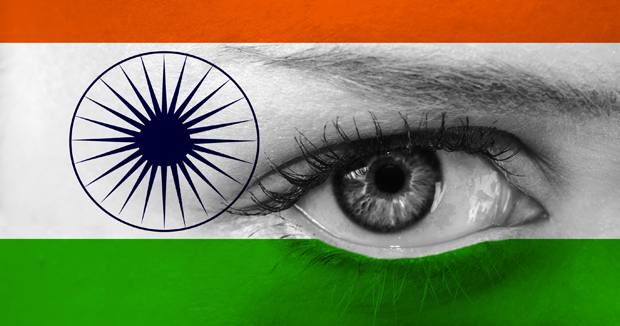Cheering for the Pakistan cricket team is dangerous in democratic India

(Photo illustration: Shutterstock)
Shapoorjee Sorabjee, the first historian of cricket in India, had cautioned more than a century ago in 1897- “… to expect all political difference to disappear or all available self-interests to be foregone on the institution of cricket relations is to live in a fool’s paradise.” Sorabjee’s words echo loudly in the persecution of 67 Kashmiri Muslim students in the city of Meerut on March 6. Historian Ramachandra Guha’s statement- “post-independence, cricket was equated with patriotic virtue”, echoes louder.
These local college students had cheered the Pakistan cricket team which trounced India in a cricket tournament. In normal circumstances, cheering a team would not have been considered perfidious or criminal. Unless of course one is thrown back to 1945, when Orwell acerbically noted that there’s nothing like certain spectator sports to add to the fund of ill-will between nations and their populations. Or, more recently, to the times of Norman Tebbit and David Blunkett for whom a cricket match was the perfect crucible to test one’s loyalty to his country.
But Indo-Pak cricket matches are anything but “normal”. On the Indian side of the border, they are nothing but battles to be won, and once victory has been achieved, to be celebrated by humiliating, vilifying and demonising “the other”, that is, Muslims. And when there are Kashmiri Muslims, the viciousness is increased manifold.
So it happened that these students were charged with sedition, which under Indian criminal law, is equivalent to treason, and carries a maximum sentence of life imprisonment. The Bharatiya Janata Party (BJP), which in its present incarnation can give the British National Party and United Kingdom Independence Party lessons in jingoism and xenophobia, quickly bared its fangs, and raised a din about bringing these “terrorist” students to justice. Not unsurprising, when its senior leader and a proclaimed patron of cricket, states with pride that cricketing nationalism is an integral aspect of a person’s national identity. When the charges were withdrawn following a loud backlash, the BJP rushed to the election commission alleging that the ruling party in Uttar Pradesh (where Meerut is located) was violating the poll code by this act of pandering to anti-national Muslims.
This sordid affair brings back memories of March 2003. The police top brass in Calcutta had planned how to prevent Muslims from supporting Pakistan during the World Cup quarter-final against India. When India won, a precedent of sorts was set- the army chief, the prime minister and deputy prime minister rang up the players and congratulated them. Such praise is usually reserved for occasions when the team wins the tournament, and not a particular match. In Ahmedabad, riots broke out when Muslims were prevented from celebrating India’s win.
It is easy to excoriate the Hindu right wing parties, but rabid Islamophobia is par for the course in so far as they are concerned. The Meerut incident demonstrates a new use of sedition initiated not by the usual suspects but by a state government which professes to be secular.
An incident of 2010 brings out the novelty factor. Arundhati Roy had criticised the government for decades of brazen civil rights violations in Kashmir, and demanded that the people of the disputed territory be allowed to exercise their right of self-determination. The “patriotic” Hindu right went ballistic, and demanded that she be tried for sedition and also deported. Charges were pressed, and even some sections of the media were complicit in an all-out attack against her, as this report details.
But Meerut is not the bastion of the rabid fundamentalists, so what could have happened? The answer is found in the antecedents of the college administrators who went to the police in the first place. The rector and chancellor are a retired police officer and army general, respectively. Representatives and agents of the Indian state, which has always used the sedition law to squelch dissent and perpetrate impunity. Almost like Omar Abdullah, the chief minister of the state of Jammu & Kashmir, who exposed his real stance by calling the charges harsh and unacceptable, and in the same breath, labelled the students’ actions as “wrong and misguided”. But more striking is the cynical opportunism by the government of Uttar Pradesh. It had done nothing to stop the bloody riots in Muzaffarnagar last year but beat the tin drum of it being “secular” to the core. Taking it one step further, it used a law described as “objectionable and obnoxious” by none less than India’s first prime minister Jawaharlal Nehru, to curry favour with the majority Hindu constituency on the eve of national elections.
Whoever thought that the odious doesn’t have its productive uses?
This article was posted on March 27, 2014 at indexoncensorship.org

